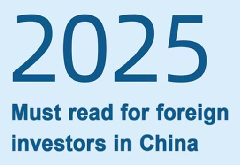Support Anti-Tumor Drug R&D for Kids — SPARK Plan
The "Support Anti-Tumor Drug R&D for Kids (SPARK Plan)" is a pilot work launched by the CDE to implement the NMPA's principles of "early engagement, tailored guidance, full-process support, and coordinated review". Building upon the "Patient-Centered Action for Rare Diseases Encouragement (CARE Plan)", the SPARK Plan is carried out in the field of pediatric drug development.
I. Background
Pediatric tumors are a type of rare or uncommon disease that poses significant burdens to both families and society. There remains a substantial unmet clinical need in the field of pediatric oncology in China. Compared with adult clinical trials, clinical trials in pediatric populations often face greater challenges, which increase the difficulty of developing anti-tumor drugs for children. To continuously promote patient-centered drug development and to provide more specific and targeted technical guidance and in-depth communication for enterprises, the CDE, building upon the "Patient-Centered Action for Rare Diseases Encouragement (CARE Plan)", has further launched the Support Anti-Tumor Drug R&D for Kids (namely the "SPARK Plan").
II. Main Contents
The SPARK Plan encourages early engagement between applicants and the CDE through the submission of the Implementation Framework for Pediatric Anti-Tumor Drug Development. This mechanism is designed to facilitate early communication with CDE and to obtain regulatory guidance on key technical issues encountered during pediatric anti-tumor drug development (including but not limited to development strategies, study design, investigational drug dosing, the application of advanced tools, and the development of pediatric formulations). During the development process, applicants shall maintain close communication with the CDE, with the ultimate goal of improving the development efficiency of pediatric anti-tumor drugs and achieving earlier marketing to meet patient needs.
III. Organization and Implementation
The CDE has drafted the Application Guidance for the SPARK Plan and the Implementation Framework, which provide detailed information on the application procedures and specific requirements for applicants intending to participate in the SPARK Plan, and may serve as references for voluntary application.
There is no limit on the number of applications for the SPARK Plan, and the application period will last for three years from the official launch date. During the application period, applicants may voluntarily submit an application through established communication channels. At the time of application, the Application Form for the SPARK Plan and the Implementation Framework for Pediatric Anti-Tumor Drug Development shall be submitted, with the remark "SPARK Plan Application" clearly indicated. After the end of the application period, the CDE will no longer accept communication requests related to SPARK Plan applications.
Applicants shall complete the Implementation Framework for Pediatric Anti-Tumor Drug Development based on the actual progress of their development work. The oncology indication review team of the CDE will evaluate whether to approve the inclusion of the application in the SPARK Plan. When necessary, a communication meeting will be held to discuss and address technical issues involved in the Implementation Framework in detail.
Upon preliminary agreement to include a drug in the SPARK Plan, the CDE will publish a public notice for five working days. Drugs for which no objections are received during the publicity period will be officially included in the SPARK Plan.



